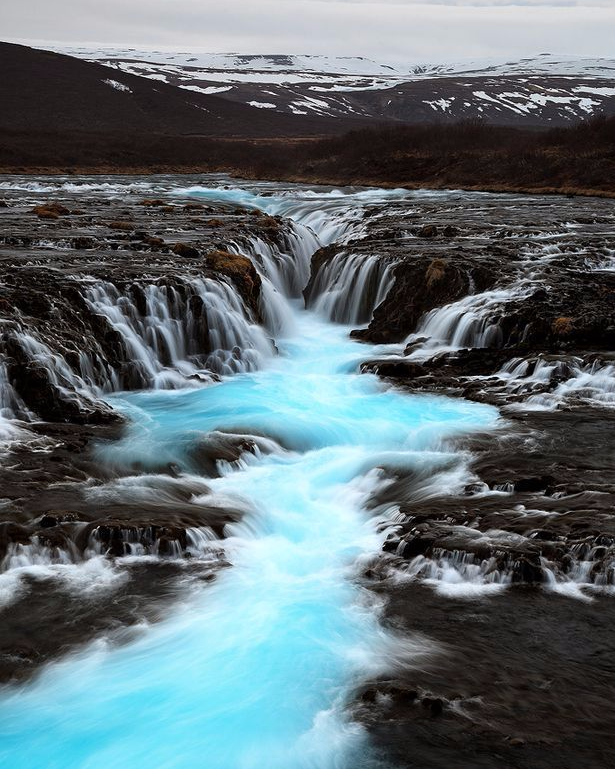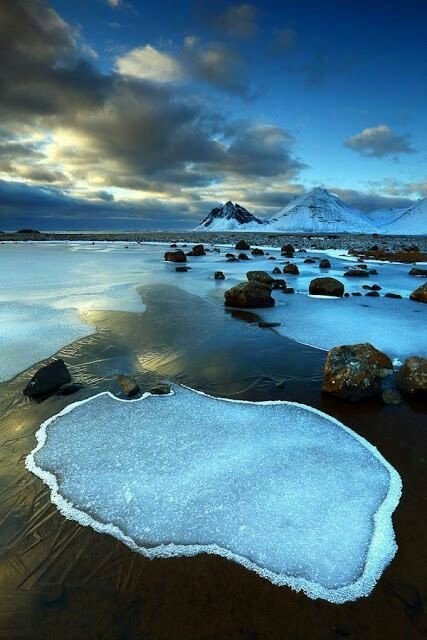[Brúárfoss, Islandia
 ![Vesturhorn, Iceland.jpg]
![Vesturhorn, Iceland.jpg]
Iceland's economic recovery shows the advantages of not entering the euro area. "(Paul Krugman, Nobel laureate for Economics)
Contrary to expectations, the crisis in Iceland ended with the recovery of sovereign rights by Icelanders through a process of direct participatory democracy that ultimately led to the creation of a new Constitution. But only after a long battle.
Geir Haarde, the prime minister of the Social Democrat coalition government, has negotiated a $ 2,100 loan, to which the Nordic countries have added another two and a half million. But the foreign financial community has put pressure on Iceland to impose drastic austerity measures. The IMF and the European Union wanted to take over the debts on their behalf, arguing that this is the only way the country can pay its debts to the Netherlands and the United Kingdom, who promised to compensate their citizens.
Protests and riots continued, forcing the government to resign. The elections were hurried in April 2009, resulting in the formation of a left-wing coalition that condemned the neoliberal economic system but immediately gave up demands for Iceland to pay a total of three and a half million euros. It implied that every Icelandic citizen would pay 100 euros per month for fifteen years, with a 5.5 percent interest rate, to pay a debt from private institutions. This was the drop that filled the glass.
What happened then was something extraordinary. The notion that citizens have to pay the broken pots of an unfair financial monopoly, that a whole country has to be taxed on the blood to pay off private debts has been shattered; the relationship between citizens and political institutions has changed and, eventually, the political leaders of Iceland have passed on to their voters. The head of state, Olafur Ragnar Grimsson, refused to ratify the law that would have made Icelanders responsible for bankers' debts and accepted requests for a referendum.
Of course, the international community has increased the pressure on Iceland. The UK and the Netherlands threatened with harsh retaliation that would have isolated the country. While Icelanders went to vote, foreign bankers threatened to block any IMF help. The British government has warned that it will freeze Iceland's current savings and accounts. As Grimsson said, "We were told that if we deny the conditions imposed by the international community, we will become Cuba North. But if we had accepted, we would have become a Haitian North. " (I have often written that, when the Cubans look at the terrible situation in their neighboring country, Haiti, they are certainly lucky).
At the March 2010 referendum, 93% of citizens voted against debt repayment. IMF immediately blocked the loan. But the Icelanders did not let themselves be intimidated. With the support of indignant populations, the government conducted civil and criminal investigations against those guilty of the financial crisis. Interpol has issued an international arrest warrant against former Kaupthing chairman Sigurdur Einarsson, while other crash bankers have fled the country.
But the Icelanders did not stop here. They have decided to draw up a new constitution to free the country from the yoke of international finance and virtual money.
To write the new constitution, the people of Iceland chose twenty-five citizens of 522 people who were not affiliated to any political party but were recommended by at least thirty citizens. This document was not drawn up by a handful of politicians, but was written on the Internet. Constitutive meetings are announced online, and citizens can submit their comments and suggestions, tracking how the document arrives in the final form. The constitution resulting from this participatory democratic process will be sent to Parliament for approval after the next election.
Today, this country is spectacularly recovering from the financial collapse through measures that are exactly opposite to those that are generally unavoidable. The Greeks were told that the privatization of their public sector is the only solution. And the population of Italy, Spain and Portugal face the same threats.
They should look at Iceland. Refusing to slaughter foreign interests, the people of this small country set foot on the threshold and showed that he is sovereign. For this reason, what has happened in Iceland is a taboo topic for the press
( )
)

It is good to know that the Icelanders acted against the global bankers, who are intent to crash the system and take away the hard earned savings of the common citizens. The Indian government should also learn from this. They are trying to introduce a new "FRDI" bill which has a bail in clause which may help the bankers to take away the savings of the depositors in case of bankruptcy. Iceland's example should be a lesson to the BJP Government about how the guilty should be brought to book and innocent investors should not be made scapegoat for the benefit of rich bankers or industrialist.
This post has received a 0.25 % upvote from @buildawhale thanks to: @ionutciobanu. Send at least 1 SBD to @buildawhale with a post link in the memo field for a portion of the next vote.
To support our daily curation initiative, please vote on my owner, @themarkymark, as a Steem Witness
This post has received a 0.63 % upvote from @boomerang thanks to: @ionutciobanu
@boomerang distributes 100% of the SBD and up to 80% of the Curation Rewards to STEEM POWER Delegators. If you want to bid for votes or want to delegate SP please read the @boomerang whitepaper.
1.09% @pushup from @ionutciobanu, @ionutciobanu